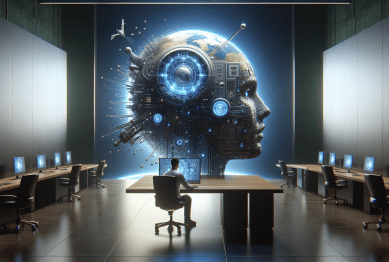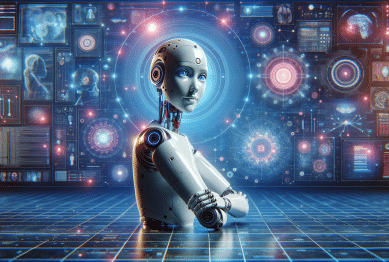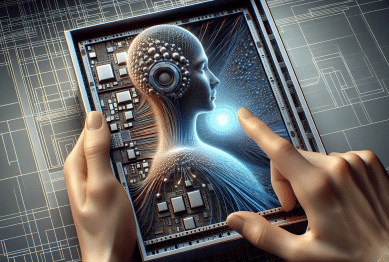Quantum computing is reshaping technology and science at a pace that’s surprising even experts. Learn how breakthroughs in quantum algorithms, cryptography, and artificial intelligence are influencing innovation and may change the way data is processed and secured.
Quantum Computing Explained: The Shift in Technology
Quantum computing is rapidly accelerating. Unlike classical computers, which use bits to process information as zeros or ones, quantum computers rely on quantum bits or qubits. Qubits allow systems to hold multiple states at the same time. This enables quantum computers to process enormous volumes of data and carry out complex calculations much faster. Recent advances in superconducting circuits, trapped ions, and photonic systems bring these extraordinary machines closer to mainstream adoption for business, science, and research (Source: https://www.nist.gov/pml/physical-measurement-laboratory-quantum-computing).
Why does this matter? The superposition and entanglement features of quantum systems unlock computational power that would take classical machines millennia to replicate. Quantum algorithms are making it possible to solve optimization problems and simulate molecules with potentially life-changing applications in medicine, drug discovery, and materials science. Early initiatives like IBM Quantum Experience and Google’s Sycamore are already demonstrating tasks that point towards powerful commercial and societal uses of quantum technology.
Some researchers believe that today’s classical supercomputers are just the tip of the iceberg. Quantum computing’s future may lie in partnerships between classical and quantum technologies, where quantum processors handle highly specific problems requiring massive computational throughput. This hybrid model is being pursued by leading tech companies and research institutions, hinting that quantum acceleration is poised to become an essential tool for advanced data science and AI applications.
Quantum Algorithms: Why Speed Isn’t the Only Gamechanger
Quantum algorithms like Shor’s and Grover’s have already shown they can outperform classical algorithms for specific tasks. Shor’s algorithm, for example, can factor large numbers exponentially faster than the best-known classical alternatives—a game changer for encryption. Grover’s algorithm can search unsorted databases much more efficiently, which could lead to significant gains in areas such as data mining, machine learning, and complexity theory (Source: https://quantum.country/qcvc/algorithms).
Quantum algorithms also offer hope for problems previously branded as computationally ‘impossible.’ Many scientific simulations in chemistry and physics stall due to the sheer number of variables involved. Quantum computers, harnessing the unique principles of quantum interference and parallelism, provide a pathway for new discoveries—potentially at the atomic level. That’s why research continues at institutions like MIT and Stanford, where teams experiment with quantum machine learning and optimization solutions to tackle challenges from materials engineering to financial modeling.
These algorithms aren’t limited to grand scientific ventures. Everyday industries, from logistics to pharmaceuticals, could benefit from quantum acceleration. Optimizing delivery networks, designing targeted drugs, and modeling financial risk may become more feasible, allowing companies to make better-informed decisions. Although widespread real-world adoption remains complex, the groundwork is being laid for quantum-inspired breakthroughs to enter more practical domains.
Quantum Cryptography: Rethinking Data Security
Data security is emerging as one of the most critical quantum computing frontiers. As quantum computers advance, traditional forms of encryption—especially those based on the difficulty of factoring—could become obsolete. Quantum cryptography seeks to provide new ways to secure communications. One example is quantum key distribution (QKD), which uses the laws of physics to guarantee ultra-secure communication channels (Source: https://www.cisa.gov/quantum-resistant-cryptography).
QKD enables two parties to generate a shared, secret key with the assurance that any eavesdropping attempt will be detected immediately. Multiple governments, including the U.S. and China, have launched national quantum initiatives focused on updating cryptographic infrastructure. Financial institutions and health organizations are actively testing quantum-safe protocols, anticipating a future where conventional cryptosystems are at risk.
As a result, the shift toward post-quantum cryptography is underway. Researchers are racing to develop new algorithms resilient to quantum threats, often leveraging classical-quantum hybrid solutions. Both public and private sectors now prioritize quantum-resilient security standards to help safeguard sensitive information, ensure trust in e-commerce, and protect personal privacy.
Artificial Intelligence and Quantum Synergy
The convergence of artificial intelligence (AI) and quantum computing could redefine entire fields. AI and machine learning tasks require colossal processing power – especially as models grow larger and data more abundant. Quantum computers, even those with a limited number of qubits, can potentially augment classical AI with novel approaches in feature selection, large-scale optimization, and neural network training (Source: https://ai.nih.gov/news/2023-quantum-ai-impact).
Some scientists foresee a future where quantum-enhanced AI accelerates progress in genomics, drug discovery, and autonomous vehicles. Quantum machine learning leverages entanglement and superposition to explore solution spaces more efficiently than classical models. Startups and researchers are racing to design algorithms and architectures uniquely suited to quantum processors, opening doors to scientific breakthroughs and advanced practical AI deployments.
Though fully realized quantum AI systems are still on the horizon, early experiments show promise. Hybrid quantum-classical workflows are being used to test optimization, clustering, and pattern recognition tasks. These efforts demonstrate how scalable quantum models and neural networks might tackle problems classical algorithms struggle to solve, such as quantum chemistry simulation and NP-hard optimization scenarios.
Navigating Quantum Hype, Limitations, and Opportunities
While the promise of quantum computing is extraordinary, it’s important to recognize current limitations. Qubits are extremely sensitive to environmental disturbances—a phenomenon known as ‘decoherence.’ Maintaining the delicate quantum state requires sophisticated cooling systems and precise engineering, often at temperatures near absolute zero. Despite recent milestones, the path to practical, error-corrected quantum computing is still dotted with obstacles (Source: https://www.nsf.gov/news/special_reports/quantum/).
Quantum supremacy—the concept that a quantum computer can outperform classical computers in specific tasks—was demonstrated by Google’s Sycamore processor for a predefined problem, but true, general-purpose quantum computers remain years away. As investment pours in, the race to overcome hardware and algorithmic barriers intensifies. Institutions like the National Science Foundation and European Quantum Flagship are heavily invested in research to address scalability, error correction, and practical deployment issues.
Understanding these constraints helps contextualize both the breakthroughs and ongoing development. Businesses and individuals interested in joining the quantum revolution can explore public testbeds and educational resources provided by universities and tech providers. The future could belong to those who adapt quickly, keep an eye on practical advancements, and adopt a realistic view of what quantum technology offers—balancing hope with informed caution.
Quantum Careers and Skills for a Transforming Landscape
Quantum technology is fueling demand for interdisciplinary expertise. Careers in quantum engineering, quantum algorithm design, and quantum hardware development are gaining momentum. Universities and online platforms now offer structured courses in quantum information science and quantum programming, allowing both students and professionals to build relevant skills (Source: https://www.edx.org/learn/quantum-computing).
Many quantum computing jobs also value backgrounds in electrical engineering, physics, computer science, and materials science. Research centers and corporations seek talent capable of bridging the quantum-classical divide, focusing on building robust quantum devices, scalable software, and secure communication systems. With industry demand growing and research advancing, investing in quantum skills could offer a competitive edge in the years ahead.
Curiosity-driven learners can take advantage of open-access education resources, including MIT’s OpenCourseWare and interactive quantum programming platforms. By staying informed about evolving quantum technologies, individuals prepare to adapt to the changes that will influence sectors—from cybersecurity and finance to healthcare and advanced AI. The future workforce may look very different, shaped by those who develop a quantum-ready mindset and cross-disciplinary acumen.
References
1. National Institute of Standards and Technology. (2023). Quantum Computing. Retrieved from https://www.nist.gov/pml/physical-measurement-laboratory-quantum-computing
2. Quantum Country. (2022). Quantum Algorithms. Retrieved from https://quantum.country/qcvc/algorithms
3. Cybersecurity and Infrastructure Security Agency. (2023). Quantum-Resistant Cryptography. Retrieved from https://www.cisa.gov/quantum-resistant-cryptography
4. National Institutes of Health. (2023). The Impact of Quantum Computing on Artificial Intelligence. Retrieved from https://ai.nih.gov/news/2023-quantum-ai-impact
5. National Science Foundation. (2023). The Quantum Leap. Retrieved from https://www.nsf.gov/news/special_reports/quantum/
6. edX. (2023). Quantum Computing Courses. Retrieved from https://www.edx.org/learn/quantum-computing






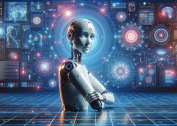
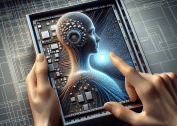
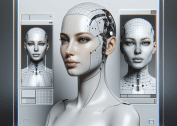

 AI News Influencing Everyday Decisions
AI News Influencing Everyday Decisions 